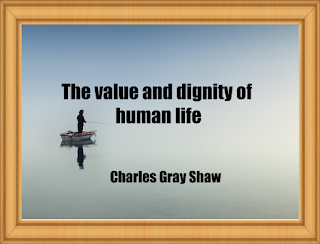The value and dignity of human life: as shown in the striving and suffering of the individual
Excerpt from the author's introduction
Such a question is taken up in the following work, which seeks to determine the apparent goal of human activity, and does not assume, with hedonist or intuitionist, that life in its totality may be expressed at once in terms of desire or duty.
Was man meant for happiness? That question is rather artless, is it not? Then, was a man meant for virtue? Yes, but what is a virtue, and who is man? With the problem of life as such in mind, this book aims to elaborate a system of major morality, based upon the totality of our human striving. In the pursuit of such a problem, major ethics deems it proper to isolate the ego in his individuality and to examine his strivings after selfhood. Is it too much to hope that this view of ethics, this estimate of the moral life, may be of aid to one who is anxious to comprehend the meaning of humanity, in order that he may find his own place in the vast world? At any rate, this is the purpose of major morality. On the academic side, it must be stated that the material contained in the following pages has already served a practical purpose among students of philosophy in New York University, where the lectures on ethics have followed the plan laid down in the table of contents. In publishing this work, I am happy in having the privilege of dedicating it to my former teacher, Professor Rudolf Eucken, whose philosophy is becoming such a factor in American thought today.
At the same time, I regret that, in pondering upon these ethical problems, I have had before me no work on ethics from the pen of this master, and I can only express the hope that the near future may witness the publication of his theory of conduct. To my colleague, Professor Robert MacDougall, I am indebted for assistance in correcting the proofs, and I take this opportunity to praise him for his patience and to thank him for his aid. My wife assumed the more trying task of reading the manuscript and helped me make it presentable. This book has been written with the conviction that a radical change is taking place in our conception of human ideals and activities.
Traditional theories and conventional morals seem to give a most inadequate view of man's inner life, while they are equally inefficient in accounting for his strivings in the world. For this reason, it becomes necessary to assume a new view of humanity, to ask, as if for the first time, what is the man for? Such a question is taken up in the following work, which seeks to determine the apparent goal of human activity, and does not assume, with hedonist or intuitionist, that life in its totality may be expressed at once in terms of desire or duty.
Was man meant for happiness? That question is rather artless, is it not? Then, was a man meant for virtue? Yes, but what is a virtue, and who is man? With the problem of life as such in mind, this book aims to elaborate a system of major morality, based upon the totality of our human striving. In the pursuit of such a problem, major ethics deems it proper to isolate the ego in his individuality and to examine his strivings after selfhood. Is it too much to hope that this view of ethics, this estimate of the moral life, may be of aid to one who is anxious to comprehend the meaning of humanity, in order that he may find his own place in the vast world?
At any rate, this is the purpose of major morality. On the academic side, it must be stated that the material contained in the following pages has already served a practical purpose among students of philosophy in New York University, where the lectures on ethics have followed the plan laid down in the table of contents. In publishing this work, I am happy in having the privilege of dedicating it to my former teacher, Professor Rudolf Eucken, whose philosophy is becoming such a factor in American thought today. At the same time, I regret that, in pondering upon these ethical problems, I have had before me no work on ethics from the pen of this master, and I can only express the hope that the near future may witness the publication of his theory of conduct.
To my colleague, Professor Robert MacDougall, I am indebted for assistance in correcting the proofs, and I take this opportunity to praise him for his patience and to thank him for his aid. My wife assumed the more trying task of reading the manuscript and helped me make it presentable.
Download 8 MB PDF book


